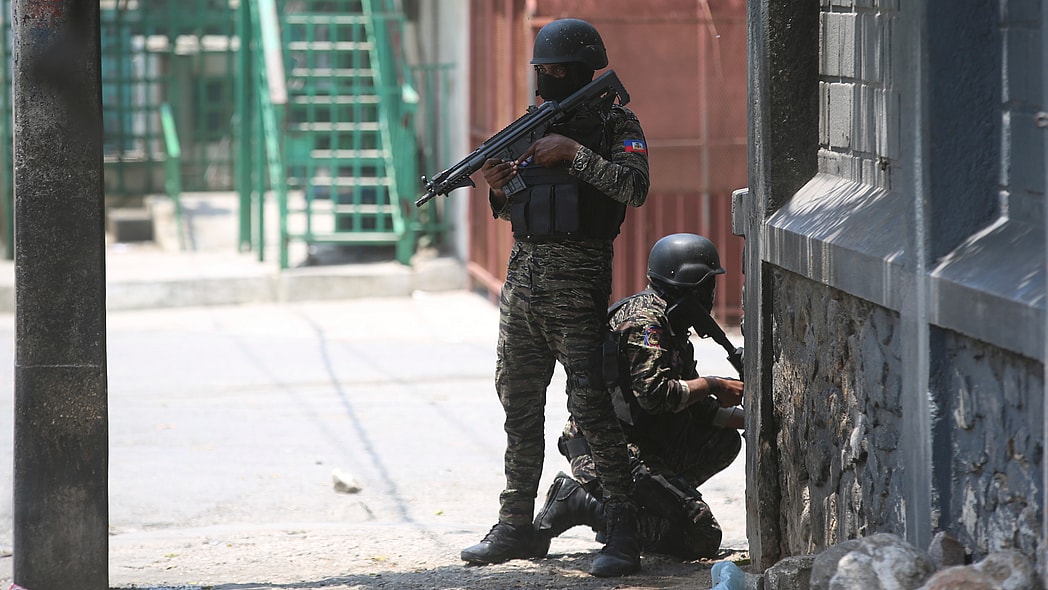Editor’s note: The following article is an op-ed, and the views expressed are the author’s own. Read more opinions on theGrio.
The narrative of Haiti (indigenous name: Ayiti) — a country woven with the threads of its
rich history, culture and resilience — has often been overshadowed by tales of strife and dependency. As a Haitian who has been involved in development work in Haiti for the past 27 years, I envision a new narrative: one where the vibrancy of Haiti and its people are front and center, crafting a future defined by empowerment and sustainable development.
Haiti is the world’s first Black-led republic, an emblem of emancipation and self-governance. Yet today, it faces serious challenges such as political instability, economic difficulties and environmental catastrophes. The Haitian people’s unyielding spirit and leadership capabilities must be appreciated and utilized more.
Our commitment should be to foster an empowered, self-sufficient Haiti — not reliant and dependent. This ethos is critical in addressing one of Haitii’s most pressing issues: national security. For close to three years, the Haitian people have asked for three main things from the international players:
- Supporting the National Police. We advocate supporting the Haitian National Police as the primary security entity, reinforcing that Haiti’s security concerns are best managed by its people, not through international or military interventions, which often do not align with the country’s long-term interests.
- Sanctions for those financing the gang activities in the country. In the same vein, addressing the nefarious influence of those undermining Haiti’s security is paramount. Sanctioning businesses and individuals who finance gang activities is a critical step. By disrupting the financial underpinnings of criminal networks, we can choke off the resources that enable their existence and break the cycle of violence and corruption that hampers our nation’s progress.
- Stop importing weapons into the country. Furthermore, stemming the influx of weapons into Haiti is essential to curb violence and restore order. The flow of arms through ports like Miami directly contributes to the instability on our streets. A concerted effort to stop the importation of weapons into Haiti would mark a significant stride toward securing the peace and safety that our citizens deserve.
As individuals, we must do more than just deliver immediate relief. As president of Ayiti Community Trust — a transnational foundation supporting rural community organizations in the country with programs such as sustainable agriculture and environmental conservation — I aim to equip Haitians with the knowledge and skills they need to build a self-reliant future. It is a future where Haitian innovation, leadership and talent are the cornerstones of our nation.
Recommended Stories
Call to action for the Haitian diaspora and allies
The Haitian diaspora and its allies hold a crucial role in the ongoing efforts to empower and stabilize Haiti. By engaging with initiatives led by Haitians, advocating for transformative policy changes and educating others about Haiti’s rich heritage and complex realities, individuals can contribute meaningfully to a brighter future for the nation. This call to action outlines practical ways the global community can support Haiti’s development and help build a foundation for sustainable growth and security.
1. Engage with Haitian-led initiatives: Seek out and support projects initiated and led by local Haitian communities. These initiatives understand the context and culture and are likely more sustainable and effective.
2. Advocate for policy changes:
- Use your voice to advocate for international policies that support Haiti’s stabilization and development, such as improved regulation of weapon exports and targeted sanctions against entities that finance criminal activities.
- Encourage and support initiatives that provide training, resources, and support to the Haitian National Police to improve public safety and national security from within.
- Pressure international bodies and governments to implement and enforce sanctions against individuals and businesses that are found to finance gang activity in Haiti.
3. Educate and inform: Counteract negative stereotypes by educating those around you about Haiti’s complexities and rich cultural heritage. Share positive stories and successes from the Haitian community.
4. Foster economic independence: Patronize Haitian businesses both within Haiti and in the diaspora to foster economic independence and growth.
5. Harness the power of social media: Use social media platforms to raise awareness about Haiti’s issues, spotlight local solutions, and call out for responsible action.
6. Support Haitian-led organizations: Many organizations are doing incredible work in the country and in the rural communities that Ayiti Community Trust is supporting. Visit the website to learn how you can join the efforts.
We must also reshape the international narrative about Haiti. Rather than focusing on deficits, let’s highlight the wealth of opportunities and the proven success of Haitians in various fields. It is time to see Haiti as a land of potential and to celebrate its people’s achievements.
Investing in Haitian-led initiatives is not merely charitable, it recognizes Haiti’s sovereignty and its people’s capabilities. We call upon the global community to join us in supporting, not leading, Haiti’s development.
I firmly believe that a new day is on the horizon for Haiti. It is a day where every child, every community, and every leader in this nation can contribute to a story of empowerment, security, and hope. In this story, the spirit of Haiti shines bright, paving the way for our future and setting an example for the world to follow.

Dr. Guerda Nicolas is a professor in the educational and psychological studies department at the University of Miami, School of Education and Human Development; past secretary general of the Caribbean Alliance of National Psychological Association; and co-founder of Ayiti Community Trust and Rebati Sante Mantale.





